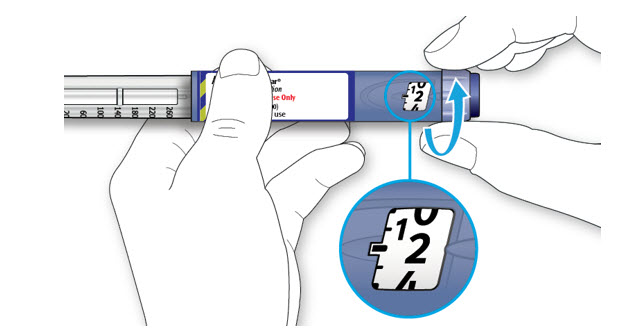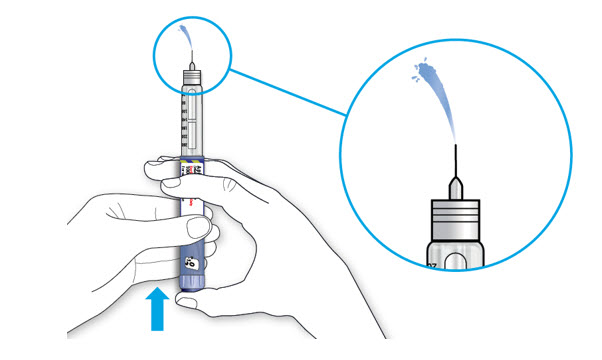Apidra | Insulin Glulisine Injection while Breastfeeding

What is Apidra | Insulin Glulisine Injection used for?
Apidra | Insulin Glulisine Injection while breastfeeding safe or not? Can there be any side effects for infant while using it during breastfeeding?

Apidra | Insulin Glulisine Injection Breastfeeding Analsys
Insulin glulisine while Breastfeeding
SafeCAS Number: 8063-29-4
Insulin is a component present in breast milk that helps to lower the risk for Diabetes Mellitus Type I among breastfed infants. A small quantity of insulin is absorbed orally which is a factor that promotes maturation of the intestine, induces glucose tolerance and prevents development of Diabetes type 1. Insulin requirements decrease about 25% after birth in diabetic mothers who breastfeed their babies. Those mothers are in need of higher self-control of disease, and, higher caloric intake is required (500 to 800 kcal/day). Attachment and nursing should be started as soon as possible since second stage of Lactogenesis may be delayed in diabetic mothers. Diabetic mothers who breastfeed would attain a better metabolic control of the disease while breastfeeding.
Apidra | Insulin Glulisine Injection Breastfeeding Analsys - 2
Insulin glulisine while Breastfeeding
CAS Number: 11061-68-0

Mothers with diabetes using insulin may nurse their infants.[1] Exogenous insulin is excreted into breastmilk, including newer biosynthetic insulins (e.g., aspart, glargine glulisine, lispro). Insulin is a normal component of breastmilk and may decrease the risk of type 1 diabetes in breastfed infants.[2][3][4] Pasteurization of milk by the Holder method reduces the concentration of insulin by about half.[5] Insulin requirements are reduced postpartum in women with type 1 diabetes.[1][6] In one study, insulin requirements were lower than prepregnancy dosage only during the first week postpartum: 54% of prepregnancy dosage on day 2 and 73% on day 3 postpartum. On day 7 postpartum, insulin dosage returned to prepregnancy requirements.[7] Another study found that dosage requirements did not return to normal for up to 6 weeks in some mothers.[8] A third study found that at 4 months postpartum, patients with type 1 diabetes who exclusively breastfed had an average of 13% lower (range -52% to +40%) insulin requirement than their prepregnancy requirement.[9] A retrospective case-control study found a 34% decrease in postpartum insulin requirement compare to preconception values. There was a nonsignificant trend towards lower requirements in exclusively breastfeeding mothers compared to partial or full formula feeding.[6] Breastfeeding appears to improve glucose postpartum glucose tolerance in mothers with gestational diabetes mellitus[10][11] and in normal women.[12] A small, well-controlled study of women with type 1 diabetes mellitus using continuous subcutaneous insulin found that the average basal insulin requirement in women with type 1 diabetes who breastfed was 0.21 units/kg daily and the total insulin requirement was 0.56 units/kg daily. In similar women who did not breastfeed, the basal insulin requirement was 0.33 units/kg daily and the total insulin requirement was 0.75 units/kg daily. The 36% lower basal insulin requirement was thought to be caused by glucose use for milk production.[13] Lactation onset occurs later in patients with type 1 diabetes than in women without diabetes, with a greater delay in mothers with poor glucose control.[7][14] Mothers with type 1 diabetes also discontinue nursing at a higher rate during the first week postpartum.[15][16][17] Women with any form of diabetes during pregnancy had more problems with low milk supply than women without diabetes.[18] Once established, lactation persists as long in mothers with diabetes as in mothers without diabetes.[14][19] However, as in women without diabetes, smoking has a strong negative impact on lactation among mothers with type 1 diabetes.[9][20] Other factors that have been identified as causes of shorter duration of breastfeeding among type 1 diabetic patients are more frequent caesarean sections and earlier delivery.[21] Among patients with gestational diabetes, those treated with insulin have a delayed onset of lactogenesis II compared to those not treated with insulin.[22]
I am nursing mother and I have already used Apidra | Insulin Glulisine Injection, what should I do?
It is always a good idea to keep your healthcare provider or doctor informed about your drug usage during pregnancy and breastfeeding but if you have not informed your doctor about Apidra | Insulin Glulisine Injection and have used it then do not panic as Apidra | Insulin Glulisine Injection is mostly safe in breastfeeding and should not cause any harm to your baby.
I am nursing mother and my doctor has suggested me to use Apidra | Insulin Glulisine Injection, is it safe?
Definitely, Apidra | Insulin Glulisine Injection is safe in lactation for baby. No wonder your doctor has recommended it.
If I am using Apidra | Insulin Glulisine Injection, will my baby need extra monitoring?
No extra baby monitoring required while mother is using Apidra | Insulin Glulisine Injection
Who can I talk to if I have questions about usage of Apidra | Insulin Glulisine Injection in breastfeeding?
US
National Womens Health and Breastfeeding Helpline: 800-994-9662 (TDD 888-220-5446) 9 a.m. and 6 p.m. ET, Monday through Friday
UK
National Breastfeeding Helpline: 0300-100-0212 9.30am to 9.30pm, daily
Association of Breastfeeding Mothers: 0300-330-5453
La Leche League: 0345-120-2918
The Breastfeeding Network supporter line in Bengali and Sylheti: 0300-456-2421
National Childbirth Trust (NCT): 0300-330-0700
Australia
National Breastfeeding Helpline: 1800-686-268 24 hours a day, 7 days a week
Canada
Telehealth Ontario for breastfeeding: 1-866-797-0000 24 hours a day, 7 days a week
